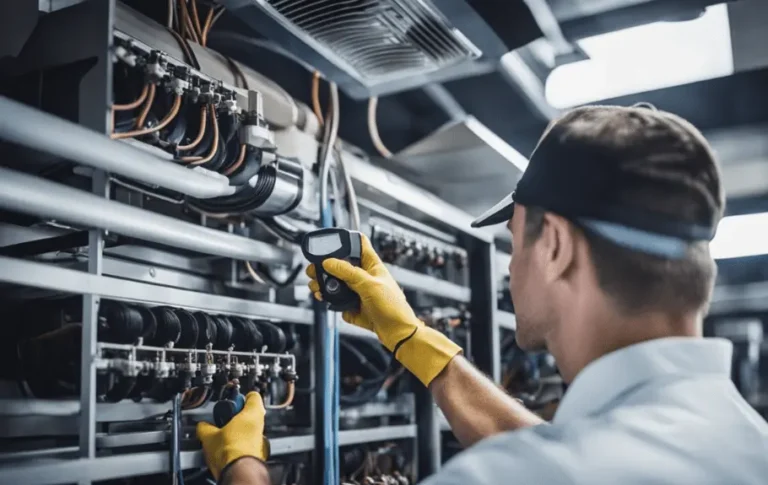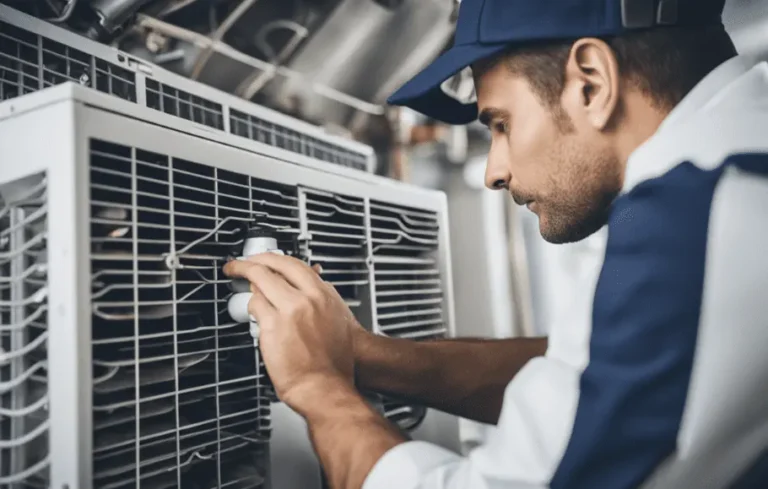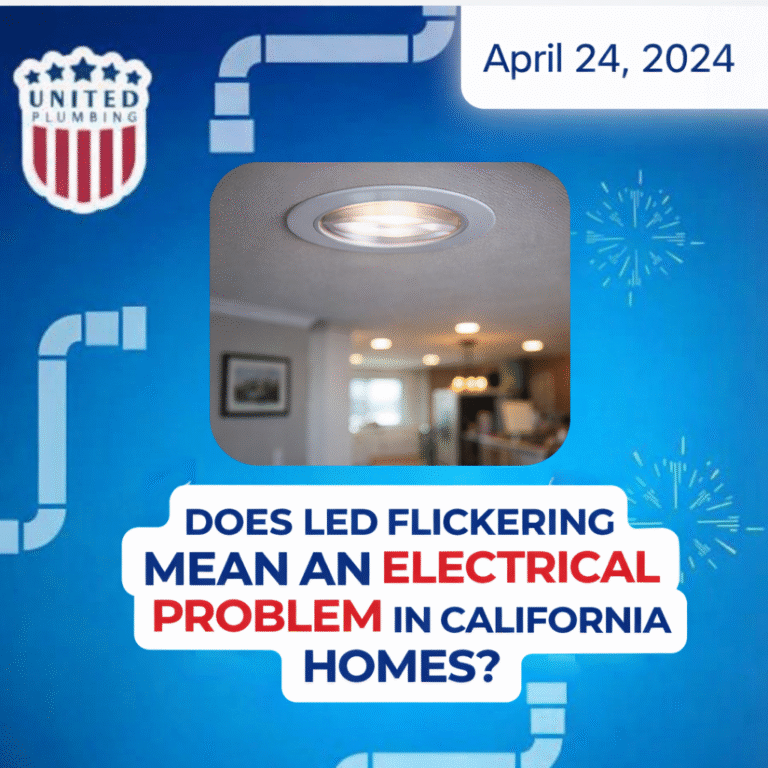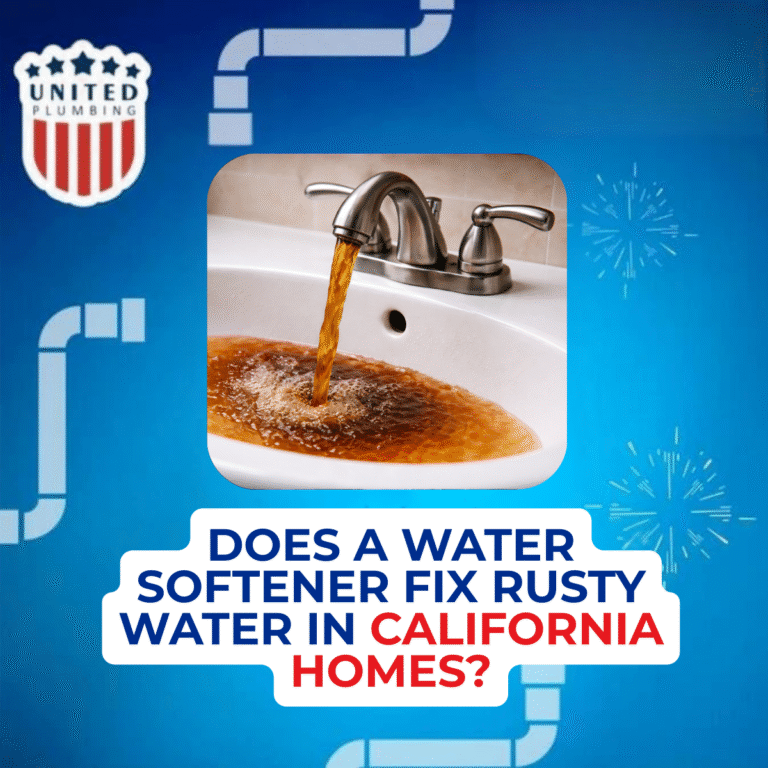FIVE-STAR TEAM WARRANTY &
SAME-DAY SERVICE
How to Improve HVAC Efficiency: Tips and Tricks for Optimal Performance
Improving HVAC efficiency is a crucial aspect of reducing energy consumption and saving money on utility bills. HVAC systems consume a significant amount of energy, and inefficient systems can lead to high energy bills, reduced comfort levels, and increased greenhouse gas emissions. Fortunately, there are several ways to improve HVAC efficiency, ranging from simple DIY tasks to professional maintenance and upgrades.
One of the easiest ways to improve HVAC efficiency is to change the air filter regularly. A dirty filter can restrict airflow, forcing the system to work harder and consume more energy. Experts recommend changing the filter every one to three months, depending on the type of filter and the level of use. Another simple way to improve efficiency is to seal air leaks and improve insulation. Leaky ducts and poorly insulated walls and ceilings can cause conditioned air to escape, leading to energy waste and reduced comfort levels.
Professional maintenance is also essential for improving HVAC efficiency. Regular tune-ups and inspections can identify and address issues that can reduce efficiency, such as dirty coils, low refrigerant levels, and faulty thermostats. Upgrading to a more efficient system or adding features like programmable thermostats and zoning can also significantly improve efficiency and reduce energy consumption.
Assessing Your Current HVAC System

Understanding Your System’s SEER Rating
The Seasonal Energy Efficiency Ratio (SEER) rating is a measure of how efficiently an HVAC system can cool your home. The higher the SEER rating, the more efficient the system is. A system with a higher SEER rating can save you money on your energy bills in the long run.
To find out your system’s SEER rating, look for a yellow tag on your outdoor unit. If you can’t find the tag, check your owner’s manual or contact a professional HVAC technician.
Evaluating Current Energy Consumption
To assess your HVAC system’s efficiency, you need to evaluate your current energy consumption. Check your energy bills for the past year and compare them to previous years. If you notice a significant increase in your energy bills, it may indicate that your HVAC system is not running efficiently.
You can also use a home energy monitor to track your energy usage in real-time. This will help you identify which appliances and systems are using the most energy and where you can make changes to reduce your energy consumption.
Identifying Common Efficiency Issues
There are several common efficiency issues that can affect HVAC systems. These include dirty air filters, leaky ductwork, and improper refrigerant levels.
Dirty air filters can cause your system to work harder than necessary, leading to increased energy consumption and higher bills. Replace your air filters regularly to keep your system running efficiently.
Leaky ductwork can cause air to escape before it reaches your living spaces, leading to wasted energy and decreased efficiency. Have a professional HVAC technician inspect your ductwork for leaks and seal them if necessary.
Improper refrigerant levels can cause your system to work harder than necessary, leading to decreased efficiency and increased energy consumption. Have a professional HVAC technician check your refrigerant levels and adjust them if necessary.
By assessing your current HVAC system, you can identify areas where you can improve efficiency and save money on your energy bills.
Strategies for Enhancing Efficiency

Regular Maintenance and Cleaning
Regular maintenance and cleaning of HVAC systems is essential to ensure their optimal performance. This includes changing air filters every three months, cleaning coils, and checking refrigerant levels. Dirty filters and coils can cause the system to work harder, leading to increased energy consumption and reduced efficiency. Regular maintenance can also help prevent breakdowns and costly repairs.
Upgrading to Energy-Efficient Models
Upgrading to energy-efficient HVAC models can significantly reduce energy consumption and improve efficiency. Energy-efficient models use advanced technology to consume less energy while providing the same level of comfort. They also come with features such as variable-speed fans, which adjust the airflow to match the cooling or heating needs of the space.
Smart Thermostats and Zoning
Smart thermostats and zoning can help enhance HVAC efficiency by allowing users to control the temperature of different zones in their home or building. Smart thermostats learn the user’s habits and adjust the temperature accordingly, while zoning allows users to heat or cool only the areas that are occupied. This can lead to significant energy savings and improved comfort.
Sealing and Insulation Improvements
Sealing and insulation improvements can help prevent air leaks and reduce energy waste. Sealing air leaks around doors and windows and adding insulation to walls and attics can help keep the conditioned air inside the building, reducing the load on the HVAC system. This can lead to significant energy savings and improved efficiency.
In summary, regular maintenance and cleaning, upgrading to energy-efficient models, smart thermostats and zoning, and sealing and insulation improvements are effective strategies for enhancing HVAC efficiency. By implementing these strategies, users can reduce energy consumption, save money on utility bills, and improve comfort.
Post views: 496
Latest posts

Does LED Flickering Mean an Electrical Problem?
What California Homeowners Need to Know
LED lights are popular in California homes because they use less energy...

Does a Water Softener Fix Rusty Water in California Homes?
If you’re seeing brown, orange, or reddish water coming from your faucets, it’s normal to wonder if a water softener...


If you still have questions or need advice, please leave a request and we will contact you as soon as possible
Need a plumber and got no clue where to start?
(408) 539-6936Facing a plumbing issue? Get a FREE in-person estimate and quick solutions from our skilled technicians, ensuring your home runs smoothly again!
